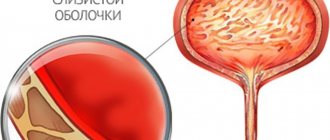The process of removing urine from the body
Let us also consider in general terms the process of urine excretion in a healthy person.
- The liquid, in the mass of which waste products are removed from the body, travels a long way - through the kidneys, ureters, bladder and urethra.
- Urine accumulates in the bladder, a muscle sac whose volume is about 300-600 ml. As it accumulates, it is released by the body.
- The fluid is discharged through the urethra (urethra).
So why does urine smell strong? The most common reason is that one of the organs that we listed above has some problems in their work. But other things can also provoke an unpleasant odor.
Other reasons
If the above diseases could not be identified, and the urine smells strongly, the reason may be different:
- Heavy physical activity;
- Injuries involving damage to the central nervous system;
- Alcohol or chemical intoxication;
- Use of anesthesia.
To normalize acetone levels, you simply need to eliminate these factors.
Certain foods
Why does urine smell - strong, pungent, unpleasant? The reason may lie in your recent lunch or dinner.
- Spices (particularly garlic) that emit a strong aroma. These seasonings can also give urine a distinct odor.
- Seafood. Especially if you have eaten them in large quantities. The statement applies most of all to mussels - both fresh and marinated.
- The most common food cause of strong urine odor is asparagus. No matter what form you use this plant, it will cause a sharp, unpleasant odor in your discharge. However, this kind of deficiency can be easily eliminated - add a little sea salt to the dish with asparagus before eating.
Taking medications
Why does urine smell so strong? The reason may also lie in taking certain medications. This side effect is most often immediately indicated in the instructions for the drug.
Among the common medicinal and prophylactic agents, the following give an unpleasant odor to urine:
- "Amoxicillin";
- "Trovan";
- "Omnipen";
- "Ampicillin";
- "Proloprim";
- "Ciprofloxacin";
- vitamin B complex.
Even more interesting:
Why is Unidox prescribed to women?
Balls hurt after arousal
Systemic disturbances in the functioning of organs
Why does human urine smell very strong? As we discussed above, this may be due to a systemic dysfunction of organs. Especially those systems through which urine passes.
The most common causes are the following diseases:
- Pyelonephritis is an inflammatory process occurring in the kidneys. It can be either a primary form (the disease affects healthy kidneys) or a secondary form (pyelonephritis is a consequence of another kidney disease). A change in the smell of urine will not be the only sign here. The patient will complain of sharp, nagging pain in the lower back. The disease is quite serious - you need to seek help from a doctor as soon as possible!
- Cystitis is an inflammation of the bladder. The disease can be either infectious or non-infectious in nature. The mucous membrane of the muscle sac becomes inflamed, which leads to disruption of its functioning - the patient’s urine will become cloudy and have sediment. An unpleasant ammonia odor will also be felt from freshly collected urine. Sometimes “medicinal” cystitis occurs - the disease is caused by long-term use of large doses of medications that irritate the bladder mucosa. In particular, these are “Urotropin”, “Phenacetin”. The urine will have a sharp “pharmacy” or “hospital” smell.
- Urethritis is an inflammation of the walls of the urethra (urethra). A disease of bacteriological, viral nature. In addition to the strong smell of urine, the patient will notice noticeable pain when urinating, purulent, bloody spots in the urine. Moreover, the smell of this disease appears as the very first of all symptoms.
- UTI (urinary tract infection). Due to the anatomical proximity of the organs, diseases of these systems are in some cases interrelated. Vaginosis, chlamydia, gardnerellosis are the causes of the sharp unpleasant odor of urine. The collected urine here will also be cloudy when held up to light.
Discharge from the urethra: diagnosis
Diagnosis of discharge from the urinary canal involves the following:
- Medical examination of the perineum/penis to identify rashes, discharge or injuries to the penis;
- Conducting palpation and assessing the density, size and mobility of the lymph nodes in the groin;
- Conducting a digital examination of the prostate in men to obtain secretions and examine them;
- Collection of smears from the urethra for laboratory tests;
- Urethroscopy to assess the condition of the canal mucosa;
- Ultrasound examination of the pelvic organs;
- General blood and urine analysis;
- CT scan.
In men and women
The characteristic putrefactive smell of urine can indicate diseases of the genital area. This is a cause for concern for both women and men. This means that inflammatory foci have formed somewhere in the genitourinary system, surrounded by suppuration. This may also speak about rectal fistulas - rectal, vesical fistulas.
The sharp unpleasant smell of urine in men is one of the symptoms of prostatitis (inflammation of the prostate gland). The patient also notes pain in the perineum, sexual dysfunction, and difficulty urinating.
If a woman, especially after recent sexual intercourse, diagnoses urine with an unpleasant odor, this may be evidence of the presence of a sexually transmitted infection in the body, an imbalance of the vaginal microflora. For the same reason, some women note this symptom after childbirth.
Associated symptoms
Along with the unpleasant acetone aroma, acetonuria is accompanied by other symptoms.
In particular, accompanying symptoms can be expressed in:
- decreased or complete absence of appetite, and talk not only about food, but also about drinks;
- nausea, vomiting;
- change in skin color;
- dry mouth;
- pain in the stomach area, etc.
Painful, swollen urination and sweating are symptoms of which condition or condition?
Typhoid bacteria can be cultured from the urine of a typhoid patient. But then transmission of infection through urine is less likely.
We suggest you familiarize yourself with Bilirubin excreted in feces and urine - Liver and tests
By white urine you mean clear urine or white color, because clear urine is only urine, but white urine is semen, and if you had a "ticklish" sensation before it happened, then its semen.
Well. Sometimes sweating and flushing of part of the bowel can be understood as a symptom associated with the medical condition IBS, but not always. Symptoms of IBS:. 1. Bloating and gas 2. Mucus in the stool 3. Constipation 4. Diarrhea, especially after eating or the first thing in the morning 5. Feeling like you still need to have a bowel movement after you already have 6.
Feeling a strong desire to have bowel movements 7. Abdominal pain and cramps that may disappear after a bowel movement.
Sweating, urination that is painful, and swelling of the ankle are usually symptoms of kidney disease. If you or a family member experiences these symptoms, contact your doctor right away.
Sweating is not uncommon. However, there is no connection with flushing. You need to be tested for carcinoid tumor; this is a simple test. Take a look and see if it matches your symptoms.
How to take tests for acetone correctly
If a pregnant woman smells acetone in her urine or breath, she should definitely get tested. The night before you should not eat fatty or salty foods. Otherwise, the result may be erroneous. It is possible to carry out analysis at home. You can buy a special test for this at the pharmacy. To carry out the analysis, you need to collect your morning urine and put the test in it. It should change color. If the strip turns pink - the acetone level is normal, purple - the level is increased, you need to consult a doctor.
After 2-3 days, it is recommended to do a repeat test; the urine may return to normal.
But if the urine smells like acetone for a long time, a more serious examination with hospitalization will be required.
Other diseases
Why does urine have a strong smell? The reason may also be diseases that, at first glance, have nothing to do with the urinary tract:
- Diabetes. A symptom of diabetes is dehydration, which causes urine to smell. If the form of the disease is severe enough, then a certain sweetish smell emanates from the urine, somewhat reminiscent of apple. This indicates an increased content of ketone bodies. The most dangerous signal is when a diabetic’s urine begins to characteristically smell like acetone. Here the level of ketone bodies went beyond the maximum norm, and acidosis began in the body. If emergency measures are not taken in this case, the patient may fall into a diabetic coma.
- Liver failure. Serious disorders affecting the functions of the organ, which can occur with viral acute hepatitis, toxic, alcoholic, drug and other lesions. The efficiency of the liver system is also reflected in urine. With the so-called jaundice, the urine has an atypical thick odor and becomes the color of dark beer or even a brownish, greenish hue.
- Leucinosis. Another name is “maple syrup disease.” This is a hereditary pathology, which is characterized by a violation of the metabolism of amino acids in the body - valine, leucine, isoleucine. The second name of the disease was given precisely by the characteristics of urine. The urine begins to smell somewhat like maple syrup. It is caused by the presence of a substance in the urine that appears from leucine.
- Trimethylaminuria. A rather rare disease characterized by a “fishy” smell of urine. What is the reason? The human body accumulates the substance trimethylamine, which is characterized by the shade of rotten fish.
- Phenylketonuria. The urine here will have a "mouse" smell. A genetic disease in which a person has difficulty metabolizing phenylalanine (one of the amino acids) in the body. The concentration of the substance in the urine gives the characteristic odor.
Acetonuria
This is a pathological condition that develops if the kidneys and lungs do not have time to remove the ketone cells entering the body. Acetone is a product of the breakdown of protein and fat in the human body. It is a toxic ketone substance, the high content of which in urine may indicate pathology of internal organs. Acetonuria must be treated, otherwise the following consequences may occur:
- damage to the brain and central nervous system;
- dehydration;
- low blood pH level;
- liver disease;
- heart and respiratory problems;
- mental disorder;
- inflammation of the mucous membrane of the stomach and intestines.
- coma (in severe cases).
Reviews
Dear readers, your opinion is very important to us - therefore, we will be glad to receive feedback about sweat that smells like urine in the comments, this will also be useful to other users of the site.
Natalia:
“In the evening the child begins to smell of ammonia, and at night the smell of urine appears. It stinks so much you can't walk past it. I consulted with experts on the Internet, they write that it could be diabetes mellitus or kidney failure. We need to donate blood, check urea and creatinine. And also check the urine for the amount of protein.”
Catherine:
“My son periodically develops sweat with the smell of urine. Doctors said it was from excess protein. I noticed that this happens after eating meat. I didn’t give it for a long time, everything was fine, we tried again, the situation repeated itself. Apparently, he should be a vegetarian."
Forecast
In most cases, sweet-smelling urine is caused by type 1 or type 2 diabetes, but an unusual odor may also indicate other conditions. Most pathologies that cause the appearance of this symptom can be treated quite successfully provided that they are diagnosed early and complex therapy is started in a timely manner. In any case, if you experience a sweet smell in your urine, you should seek medical help as soon as possible. You need to visit your local physician, who will prescribe tests and write a referral to a urologist, endocrinologist or other specialists.
Why is my baby's urine smelly?
Let's look separately at cases involving children:
- Only newborns will have no odor in their urine. As you grow older, your urine will take on characteristics characteristic of adult urine.
- An unpleasant odor of urine in infants is one of the signs that the child has a genetic disease.
- For example, why does the urine of a 5-year-old boy smell sharp? This may indicate a genitourinary disease in the child.
- Urine in children acquires a pungent odor at high temperatures and dehydration (often these factors are related). In such cases it becomes more concentrated. This will be the cause of the smell. Try to give your baby as much fluid as possible.
- If a baby is breastfed, the smell of his urine often reflects what the mother ate. We have already said which products give urine a pungent odor.
Even if the reason seems too banal to you, it would not be a bad idea to take your child for a consultation with a pediatrician.
Sweating function [edit | edit code]
When exposed to high ambient temperatures, the reflex occurs due to irritation of skin receptors that perceive heat.
Sweat glands are involved in regulating body temperature. It takes 2436 kJ to evaporate one liter of sweat, causing the body to cool down. At low ambient temperatures, sweating decreases sharply. When the air is saturated with water vapor, the evaporation of water from the surface of the skin stops. Therefore, staying in a hot, damp room is poorly tolerated.
Why does my cat have stinky urine?
In conclusion, about our little brothers. Reasons why a cat has smelly urine:
- Just like in humans, the strong smell of ammonia from urine will indicate dehydration.
- The animal has entered the period of puberty and hunting. The smell is caused by increased activity of the sex glands.
- The cat's diet is incorrect. The reason is a protein imbalance.
- Disease of a genitourinary nature. Everything here repeats the human situation.
- Hormonal diseases, cancer. An alarming sign is a putrid smell. Often he alone can speak about a serious pathology.
- Severe stress. A pungent odor in this case is a disruption in metabolic processes.
If an unusual smell appears for no apparent reason and does not go away within 2 weeks, this is a reason to take the animal to the veterinarian.
So we have figured out all the reasons for the strong smell of urine. Even if some of them are harmless, this is still a sufficient reason to consult a doctor.
Why does a woman’s urine have a pungent, sour smell, what does this mean?
When absolutely healthy, urine does not have any foreign aroma, discoloration or inclusions. The reason for the smell of urine in a woman may be an incorrectly selected diet, a latent disease, or abnormalities in metabolic processes.
Ignoring primary symptomatic manifestations can lead to further development of pathology. The barely noticeable odor gradually increases, accompanied by symptoms of a progressive disease.
Without undergoing a full diagnostic examination, it is impossible to say exactly which version of the infection attacked the body. A sharp and unpleasant smell from urine in women during menopause is a harmless manifestation of hormonal imbalance.
Unpleasant urine odor in women
If the urine has a strong odor, then the girl should consult a local physician and receive a referral for testing.
If the urine smells bad of iodine, vinegar or has a chemical smell, then patients should seek professional help at the local clinic.
Unpleasant smell of urine as a symptom of one of the diseases
A specific aroma may occur due to the following problems:
- inflammatory processes in the bladder, kidneys, urethral canal;
- as a consequence of sexually transmitted infections;
- bacterial vaginosis;
- thrush;
- candidiasis.
Under the influence of pathological factors, the smell of biological fluid changes - that’s why urine smells strong.
Unpleasant urine odor during pregnancy
Constant changes in hormonal levels are a standard indication during pregnancy. A change in the smell of urine accompanies almost the entire time of pregnancy and only after childbirth the condition stabilizes. The pungent odor disappears, urine acquires its usual aroma.
Foods that cause urine to smell bad
Indulging in onions, garlic, horseradish or coriander seeds in large quantities is accompanied by a corresponding smell. For the same reasons, urine can smell like smoked meat or fried sunflower seeds.
Changes affect only the aroma - color and consistency remain at normal levels. Sources of the smell of sauerkraut include following a specialized protein diet - excess of the element contributes to impaired liver function. When determining the cause of the problem, girls should rebuild the daily menu to a complete diet, without the benefits of individual products.
Problems with the normal functioning of the liver can provoke the smell of sour beer.
Excess acetone during pregnancy
If the urine smells like ammonia in a pregnant woman, this is a serious reason to sound the alarm. After all, it poisons not only the adult body, but also the child. Excess acetone often causes gestational diabetes, which can progress to diabetes mellitus. This is a danger for both mother and child.
Signs of the presence of acetone in a pregnant woman:
- General weakness, drowsiness.
- Frequent dizziness.
- Nausea.
These symptoms often occur in pregnant women, but it is still better to get tested for the presence of ketone bodies. If they are identified, treatment under the supervision of a doctor will be required.
A common cause of increased acetone in the urine is toxicosis, which leads to dehydration and nutrient deficiency. But a pregnant woman is not immune from all of the above reasons. Therefore, to clarify the diagnosis, it is necessary to undergo a thorough examination.
Treatment methods
If your urine has an uncharacteristic odor, becomes cloudy, changes yellow, or acquires a suspicious structure; this is not due to physiological reasons, you should immediately consult a doctor.
There is simply no universal remedy that could help if urine smells bad. This is due to multifactorial reasons that can have a direct impact on the composition and quality of urine. Several common methods of therapy aimed at eliminating pathology should be considered:
- Hormonal imbalances caused by age-related, menopausal or other changes are eliminated by taking appropriate medications that help restore the balance of certain substances in the body.
- Against the background of the development of inflammatory processes and diseases caused by viruses and bacteria, antibiotics, antibacterial and immunomodulatory agents are required.
- If the urine stinks due to a violation of the natural microflora of the internal organs, the use of drugs is required - prebiotics, agents that help eliminate factors that have a direct impact on the development of pathology.
Of course, the list of treatment methods that can be used against the background of such an unpleasant symptom as the strong odor of urine is much wider, as is the list of reasons leading to its occurrence.
Folk remedies
If the reason why the urine smells has been identified, it does not have pathological prerequisites, for example, a strong odor is a consequence of the use of drugs, food, or other harmless reasons, it is recommended to pay attention to traditional medicine recipes that will help cope with the unpleasant phenomenon.
- Apple juice. A simple, tasty remedy will help remove toxins from the digestive tract and excretory system, and saturate the body with important substances it needs. It is important to remember that only freshly squeezed juice can be beneficial, which should be consumed daily.
- If women's urine smells strong, it is recommended to regularly take a delicious rosehip compote. The drink helps saturate the body with an important substance - vitamin C, and helps remove toxins, waste, and decay products. To prepare the drink, just brew a small handful of fruits with hot water, boil, and let sit for a couple of hours. You can drink the drink separately, adding honey, sugar, or in combination with regular black tea, which does not detract from its beneficial properties.
- Tea made from dried black currant leaves is no less effective. To prepare the drink, pour boiling water over a handful of raw materials and leave. Drink it alone or combine it with your usual black tea.
Not every modern woman pays attention to the fragrance and color of urine, until the unpleasant amber becomes clearly pronounced. Namely, the quality of biological fluid is the primary indicator of the activity of internal systems, organs, and the correct functioning of the body. The slightest disruptions in the body are reflected in the composition and smell of urine. For timely detection of pathologies and implementation of adequate therapeutic measures, it is important to know whether the quality of the liquid meets the standards or has deviations.
The smell of urine is one of the criteria for the well-being of human health. Changes in the characteristics of urine accompany diseases of the urinary system: pyelonephritis, glomerulonephritis, chronic renal failure, urethritis, cystitis. In case of persistent changes, it is recommended to consult a doctor for laboratory tests and instrumental diagnostics.
What do different types of unpleasant odors indicate?
Disgusting aromas can signal the initial stages of the formation of serious diseases. The diagnosis is clarified by the specific odor with which the patient’s urine thaws.
Smell of acetone
A pungent aroma indicates the possible presence of the following pathological abnormalities:
- about oncological processes in the stomach;
- diabetes mellitus;
- incorrectly selected daily diet, with a predominance of fat and protein components;
- chronic elevated body temperature;
- exhaustion formed due to the dietary table;
- fasting;
- excessive physical activity for the body.
What does the absence or presence of aromas indicate? Normally, the body removes acetone in small volumes using the kidneys, but if a strong odor occurs, the deviation indicates pathological signs of its presence in the body.
Ammonia smell
Nitrogen compounds are constantly present in the biological fluid of every patient. A pungent ammonia smell indicates the occurrence of the following diseases:
- inflammation that has captured one of the parts of the urinary tract - cystitis, urethritis, pyelonephritis;
- liver diseases;
- urine smells like ammonia due to insufficient kidney function;
- diabetes mellitus;
- oncological problems - in this option, not only the smell, but also the color of urine changes.
Sometimes the clinical manifestation is not related to the pathology. Extraneous aromas appear in patients who consume calcium and iron in high dosages, when holding back the urge to urinate for a long time - this is why urine smells like ammonia alcohol.
Sour smell
A biological fluid that smells like yeast is a sign of a fungal infection in the body. Similar symptoms can be observed with candidiasis and candidal urethritis. Along with the smell, accompanying symptoms appear:
- cloudy urine;
- discharge of a cheesy secretion from the vagina with lumps or flakes;
- obsessive itching in the genital area;
- the appearance of a whitish coating on the mucous membranes and skin of the labia.
Sour urine odor requires visiting a dermatologist and receiving a treatment regimen.
Fishy smell
Common sources of foul odor include diseases transmitted between sexual partners. The stench resembles the smell of rotten fish; the symptoms accompany the following pathologies, which are presented:
- Trichomoniasis - a disease formed by the penetration of trichomonas. Primary signs of the disease are recorded a month after the moment of infection. Foamy discharge with a specific odor comes out of the vagina, swelling of the genital organs and a change in their color are observed. Pain occurs during sexual intercourse. Patients are haunted by the aroma of rotting.
- Chlamydia - penetration of chlamydia occurs during vaginal and anal sex. The primary signs of the disease are discomfort that occurs when emptying the bladder. A non-standard secretion is released from the vagina, sometimes containing blood particles. Girls complain of discomfort in the lower abdominal segment.
- Ureaplasmosis - an infectious process quickly invades the area of the uterine appendages. The pathological process can lead to serious complications, including infertility. Some patients develop urolithiasis in the absence of a timely course of therapy.
- Mycoplasmosis – infiltrated pathogenic microflora becomes a source of development of pyelonephritis, inflammation in the urethra, and bacterial vaginosis. Mycoplasma can provoke numerous complications. The level of odor changes as the disease progresses.
- Gonorrhea - registered at the time of penetration of gonococcal infection. After the incubation period, particles of pus are recorded in the discharge. Emptying the bladder is accompanied by pain, and patients suffer from obsessive itching and discomfort in the genitals. The urine smells unbearably, especially in the morning.
Other sources of the aroma of rotten fish are represented by trimethylaminuria. Pathology refers to genetic problems with impaired regulation of the production of liver enzymes.
Sweet smell
Leucinosis refers to the prerequisites for the occurrence of a sweetish odor from urine. The disease is hereditary and is associated with abnormalities in the production of enzymes responsible for the breakdown of amino acids. The result of the pathology is the accumulation of decay products in cellular structures and the subsequent exacerbation of the disease.
Secondary symptomatic manifestations of the disease are characterized by the appearance of seizures, problems with coordination of movement, and sudden vomiting. The disease cannot be treated; patients are forced to follow a specific diet all their lives - this is the only way to get rid of foreign aroma.
Smell like rodents
Phenylketonuria is the source of the acrid smell of mold or the aroma of mice. The pathology is characterized by deviations in metabolic processes, as a result of which an accumulation of phenylalanine is recorded in the body. The result of the disease is a disruption of the metabolic processes of protein elements.
Rotten smell
Penetration of E. coli into the urinary tract is accompanied by a pungent odor of hydrogen sulfide. The reasons for the development of the disease are violation of genital hygiene requirements or sex with a carrier without the use of personal protective equipment.
When it enters the ureter, the bacterium attaches to its walls and begins to gradually ascend to the bladder. A decrease in the efficiency of the autoimmune system contributes to the active proliferation of E. coli. Patients note:
- apathy, loss of strength;
- increased urge to urinate;
- urine has a pungent smell of rotten eggs;
- decreased ability to work;
- the biological fluid contains particles of pus and blood.
Overindulging in asparagus can also cause your urine to smell like rotten eggs. After stopping its use, the unpleasant odor disappears after six hours. As an exception, a foul odor is present in certain cancer processes - this is why women's urine smells unpleasant.
Preparing for a urine test and rules for collecting urine
The biochemical composition of urine directly depends on the quantity and quality of fluid and food consumed, as well as physical and psycho-emotional stress. Therefore, on the eve of the procedure, it is recommended to avoid fatty and spicy foods, sweet or spicy delicacies. It is necessary to reduce physical activity.
Urine is collected in the morning in a clean and dry container. For research, it is advisable to take a “medium” portion. Before collecting biomaterial, it is recommended to carry out hygienic treatment of the external genitalia using a shower or wet wipes. During menstruation, it is advisable to refrain from taking the test, as its results during this period may be inaccurate. It is not recommended to collect material after sexual intercourse and defecation, or to use urine that has been in the refrigerator for more than 3 hours for research.
How to get rid of unpleasant urine odor
Experts recommend undergoing a full diagnosis of the body’s condition, identifying existing hidden diseases, and identifying the causes of diseases of the kidneys and other organs included in the genitourinary system.
Folk recipes
To get rid of bad smell, healers offer the following recipes:
- Brew a spoonful of dry currant leaves in a glass of boiling water. The resulting mixture is kept in a water bath for 20 minutes and filtered. Drink ¼ cup three times a day.
- To cleanse the liver and kidneys, it is recommended to take apple juice daily. The procedure saturates the body with vitamin and mineral components and eliminates strange odors.
- Rosehip infusion is used as a diuretic and bactericidal agent. For a liter of fresh boiling water, take two handfuls of dried fruits and leave them in a tightly sealed container overnight. The next day, filter it and drink a glass three times a day.
Homemade recipes are not recommended for use in case of allergies to plants or certain liver pathologies.
Changing your diet
Dietary nutrition is prepared individually and depends on the ongoing disease. If the content of protein elements is exceeded, dairy products, chicken eggs, meat products and chocolate are removed from the diet. After some time, they are reintroduced, but in minimal proportions.
Almost all of the above pathologies require compliance with the drinking regime. Sufficient volumes of incoming fluid will cleanse the kidneys and urinary tract. In the fight against unpleasant odor, the balance of all components necessary for the body plays an important role.
Drug treatment
What determines the effectiveness of drug therapy? From the results of the diagnostic examination. Before prescribing a specific therapy algorithm, the patient is sent for diagnostics, during which the condition of the bladder is analyzed. Laboratory manipulations make it possible to determine the amount of bilirubin and conduct urine tests.
- Inflammatory and bacterial infections require the administration of separate pharmacological substances. Antibacterial therapy is carried out with Gentamicin, Ceftriaxone, Nofloxacin, Doxycycline, Levofloxacin. Gynecological practice is based on treatment with Terzhinan and Clindamycin.
- Pathologies of the urinary tract - symptomatic occurrences are suppressed by Nitroxoline, Furamag, Bisptol, Canephron, Phytolysin, Trinephron. The drugs have an antibacterial spectrum of action.
- Damage to the genital area requires the prescription of antibacterial suppositories - Betadine, Hexicon, Chlorhexedine, Metrogyl.
In order to prevent intestinal dysbiosis, patients are recommended to take probiotics - Linex, Acipol, Bifidumbacterin. Taking medications can be replaced by using specialized products containing bifidobacteria and other necessary elements.
Self-medication is strictly prohibited. Only after identifying the level of resistance of pathogenic microflora to drugs is the choice of the most suitable antibiotic possible. Medicines are selected by the attending physician in accordance with contraindications, the general condition of the body and the severity of the disease.
Frequent urination can also be observed in a healthy person - due to hypothermia or drinking a large number of drinks. The main attention of patients should be drawn to changes in the characteristics of the biological fluid - color, consistency, foreign impurities.
Urinalysis according to Nechiporenko
Urinalysis according to Nechiporenko
– one of the most popular laboratory tests in urology and nephrology. It allows you to accurately identify hidden inflammatory processes and pathologies of the genitourinary system, and is also an additional method for determining the level of leukocytes in the urine. To obtain a reliable result, the patient must, 24 hours before collecting the material, stop drinking alcohol, carbonated drinks, protein products, smoked foods, fatty and spicy foods. You should not donate urine according to Nechiporenko during menstruation. Taking antibiotics and anti-inflammatory drugs can also distort the data obtained. Before the procedure, it is necessary to toilet the external genitalia.
Composition of sweat [edit | edit code]
The composition and volume of sweat fluid can vary within very wide limits depending on environmental conditions.
On average, at room temperature a person secretes 400-600 ml of sweat per day [ source not specified 86 days
] . In hot weather, as well as due to heavy physical labor, 1-2 liters may be released. sweat per hour [3] (some athletes up to 5 liters).
Sweat also contains other [ clarify
] products of mineral metabolism, sulfuric acid compounds, phosphates, potassium chloride, calcium salts, as well as products of protein metabolism: urea, lactic acid, uric acid, ammonia, some amino acids. Sweat contains volatile fatty acids. The sweat reaction is acidic: pH 3.8-6.2. The acidic reaction of sweat contributes to the bactericidal properties of the skin.
If your urine smells bad: 10 reasons
There are 10 most common causes of foul-smelling urine that indicate the presence of a disease or condition. Let's take a closer look at them.
Urine - introductory information.
From a medical point of view, urine is a sterile by-product of the human body that is excreted by the kidneys during the process of urination. And it is anatomically excreted through the human urethra, which is part of the kidney.
Urine consists of waste products and some water-soluble chemicals that are not needed by our body. In addition, it is the primary basis for diagnosing many diseases.
Typically, our urine is characterized by a straw-yellow hue and a clear appearance. Moreover, normally it does not have a strong odor. There are cases where a person experiences foul-smelling urine and this may indicate a benign or serious condition that may require medical attention.
If this happens for a long time, then you should consult your doctor and get a diagnosis.
Causes of unpleasant urine odor.
The most common cause of this condition is dehydration. If you don't drink enough water, your body becomes dehydrated and tries to eliminate less fluid. As a result, the urine becomes less clear, dark in color and has a strong odor.
There are some foods that can cause bad odor. Among them: asparagus, garlic, Brussels sprouts, onions, curry, alcohol, salmon, and coffee.
3. High salt diet.
A diet or diet high in salt can also make the urine more concentrated and give it a stronger odor.
4. Urinary tract infection.
One of the most common causes of bad-smelling urine may be a UTI or urinary tract infection. In fact, when urine has a strong ammonia odor or foul odor, it is often the first sign that there is an infection in the area. The bacteria causing the infection cause the odor and also make the urine cloudy. If you suspect a UTI, you should consult your doctor to start taking an antibiotic.
5. Diabetes mellitus.
One of the most common symptoms of diabetes is a frequent need to urinate, as well as foul-smelling urine. It may have a "fruity" smell due to the extra sugar released by the kidneys in type 2 diabetes.
6. Genetic disorders.
There are also some genetic disorders that are associated with urine odor. If it smells sour or fishy, it may be a sign of a condition called trimethylaminuria, which also gives the body a strong odor. This pathology is more common in women, and symptoms may worsen during puberty, during the menstrual cycle, or after taking oral contraceptives.
Some sexually transmitted diseases can also cause foul-smelling urine. Chlamydia, trichomoniasis, etc. are sexually transmitted infections (STIs).
Hormones such as estrogen and progesterone do not necessarily change the smell of the urine itself - they often enhance the sense of smell during this period.
Changes in hormones that allow a baby to grow and bear also cause foul odor. During pregnancy, urine may have a stronger odor due to hormones produced during pregnancy, especially in the first trimester.
10. Certain supplements and medications.
There are also some supplements, vitamins, and medications that can cause changes in the smell of your urine. Medications high in vitamin B6, including some multivitamins, heart medications, prenatal medications, etc.
Other, less common reasons.
These include kidney stones and liver disease. If you experience pain in the lower back and when urinating, see blood in your urine, and also smell a strong smell of urine, you may have urolithiasis. Similarly, in case of liver failure, symptoms such as yellow skin and eyes (jaundice), abdominal pain, nausea and vomiting, and dark, foul-smelling urine may occur.
Treating vaginal odor
What should you do if a woman’s vaginal discharge smells unpleasant - like rotten fish, herring with onions and garlic, then mixed with sour milk and other gastronomy? Moreover, the unpleasant odor in an intimate place is strong and can be felt even from a distance? The correct approach to this situation and avoiding self-medication at home will help you get rid of the problem! By following the wrong advice and opinions from reviews on forums, you can waste valuable time, develop an illness, and develop complications.
⚠ Remember that you need to fight not the smell, but the cause of its appearance: a disease (inflammatory or infectious process) or an imbalance of microflora.
Before you start, you first need to find out the cause of this scourge. It is not an independent disease, it is only a symptom that is caused by a more serious pathology that requires treatment. And since in 90% of cases the unpleasant smell of the vagina is caused by discharge, you should start by diagnosing the cause - checking with a gynecologist in the chair and taking tests for infections.
Have a problem and think where is the best place to go with this issue in Moscow? Having established the source of the unpleasant odor, the doctor at our Gynecology Clinic will be able to prescribe a treatment that is effective in your particular case - the use of antibacterial drugs, aerosols, gels, creams and suppositories will help to effectively and quickly remove strong odor from your intimate area! We accept daily from 10-00, including Saturdays and Sundays.
Tests if there is vaginal odor:
• Smear to determine the degree of purity; • Microflora smears; • Analysis of bacterial culture of secretions with determination of antibiotic sensitivity; • PCR diagnostics of “latent infections”; • Florocenosis analysis; • Analysis for bacterial vaginosis; • Gram microscopy; • NASBA complex.
3 simple steps to success or how to rid your vagina of unpleasant odor:
- Realize that the way your vagina smells now is not the norm,
- Urgently make an appointment with a gynecologist in a good clinic,
- Get a chairside examination and be tested for STDs.
Don't rush to panic
A bad odor noticed during urination is not always a sign of danger. There are several non-pathological reasons why urine smells different than usual. A changed odor in a normal state of health may appear due to the following circumstances:
- Human diet. Urine sometimes changes aroma under the influence of alcohol, asparagus, spicy and salty foods. The causes of a strong odor caused by food go away on their own. This usually requires 1-2 days from the last time you took such products. But if you continue to regularly abuse beer and eat smoked foods, the situation will not change. If after giving up this diet the aroma becomes normal, then the problem was in the diet.
- Medications. Vitamins, antibiotics and other medications can affect the characteristics of urine. After drug treatment ends, the substances are independently eliminated from the body, and the urine is normalized in all respects. For example, when treated with ampicillin, many people note a strange smell of urine, which goes away after the end of the course of therapy. B vitamins also affect urine characteristics.
- Violation of water balance. Unpleasant urine odor in men and women can occur if a person is on a strict diet or suffers from dehydration. This usually happens to those who exercise or try to lose weight. As a result, a pungent odor of ammonia is sometimes felt when urinating. In order for the situation to normalize, you need to drink a lot and eat a balanced diet, including the required amount of vitamins, minerals and nutrients in your diet.
Treatment of acetonuria in pregnant women
General principles of treatment include the following procedures:
- Saturation of the body with water. To do this, be sure to drink plenty of fluids. If, due to toxicosis, water is not retained in the body, medicinal solutions such as rehydron or gastrolit are prescribed. They restore the body's water balance. They need to be taken frequently - 1 tsp every 5-10 minutes.
- Therapeutic diet: vegetables, boiled lean meat, low-fat cottage cheese, fruits, especially apples.
- Drugs that remove toxins, such as activated carbon, enterosgel.
- To maintain the level of vitamins and glucose in the body of a pregnant woman, droppers with vitamins and glucose are used.
Such measures are effective if there is no serious disease that causes an increase in acetone in the body. If present, parallel treatment is carried out.











